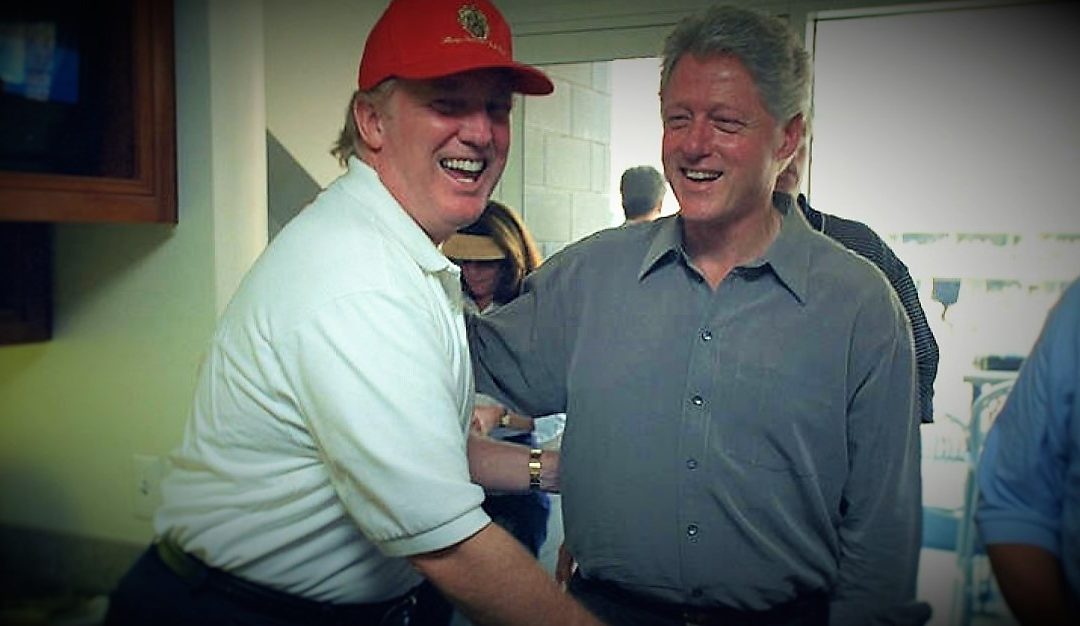The election of 2016 will be long remembered for the shocking surprise Bubba gave America.
White working class men and women in the Midwest, both Republicans and Democrats, took a long forgotten blue “firewall” and turned it red. If Pennsylvania (33,000 votes out of 5.8 million), Michigan (5,500 votes out of 4.6 million) and Wisconsin (13,000 votes out of 2.8 million) had gone for Hillary Clinton, as every poll indicted they would, she would be the president-elect today.
These proud Midwesterners, the backbone of our nation, never ask for a lot. Just a decent living so they can own a home, put food on the table, send their kids to college and afford medical care when needed. They have been trying to get Washington’s attention for years, because these simple goals are in danger of becoming unattainable.
Former president Bill Clinton, himself nicknamed “Bubba” during his presidency, understood these voices. He had advocated for months that his wife’s campaign refocus on white working class voters. They had been his key to victory in both 1992 and 1996, as he won Ohio, Pennsylvania, Wisconsin, Michigan and Iowa.
But his advice, almost inexplicably in hindsight, fell mostly on deaf ears.
Hillary Clinton’s campaign manager Robbie Mook said about white working class voters in July that at worst Trump would receive “a slight increase of support over what Mitt Romney got.”
Even when the Democratic shellacking in the 2014 midterms was mentioned, Clinton strategist Joel Benenson said that winning the white vote, and specifically the white male vote was not important.
The Clinton team decided to instead focus their attention squarely on the Obama coalition. If they could convince enough millennial’s and suburban women in Starbucks to turn out and vote, they wouldn’t need to worry about Bubba and his wife shopping at Walmart.
It doesn’t take a rocket scientist to do the math. Hillary Clinton was never going to get as many African American or millennial votes as Barack Obama, and that meant she needed more white working class voters in Wisconsin, Michigan and Pennsylvania.
Democrats simply took them for granted. Donald Trump, on the other hand, spent a year campaigning as the champion of “forgotten Americans” who had been left to fend from themselves due to threats from free trade, immigration, and rampant drug usage.
In the end, the bastions of industrial-era Democratic strength among white working-class voters fell to a billionaire from New York City:
- The Wyoming River Valley of Pennsylvania — which includes Scranton and Wilkes-Barre — voted for Trump. It had voted for Obama by double digits.
- Youngstown, Ohio, where Obama won by more than 20 points in 2012, was even. Trump swept the string of traditionally Democratic and old industrial towns along Lake Erie. Counties that supported Obama in 2012 voted for Trump by 20 points. Erie County hadn’t voted for a Republican since it went for Ronald Reagan in 1984.
- The rural countryside of the North swung overwhelmingly to Trump. Most obvious was Iowa, where Obama won easily in 2012 but where Trump won a landslide. Same thing happened in Ohio.
- Trump’s gains extended east, across Wisconsin and Michigan to New England. Trump won Maine’s Second Congressional District by 12 points; Obama had won it by eight points just four years ago.


These gains for Trump in the blue firewall states went far beyond what many believed was possible. The white electorate in the Midwest put their trust in him and made him the president-elect.
“I was the crazy one, I predicted that Hillary Clinton was in trouble in Michigan,” said Rep. Debbie Dingell (D-MI). “At Rotary clubs, local chambers of commerce, union halls and mosques, I noted that we could see a Trump presidency. ‘That’s Debbie, it’s hyperbole, she is nuts.’”
Dingell, who represents a diverse Democratic district that includes a university town, urban areas, and auto and manufacturing plants, had been sounding the alarm bell all year. Her district had sent a strong signal to the Clinton campaign earlier in the year after it went overwhelmingly for Sen. Bernie Sanders in the primary.
“That result didn’t surprise me, but it did infuriate me that Clinton and her team didn’t show up until the weekend before the primary, when it suddenly became clear they had a problem,” said Dingell. “I took Bill Clinton grocery shopping that Saturday — too little, way too late.”
In the end, it wasn’t racism or sexism or WikiLeaks or FBIgate that doomed Hillary Clinton’s candidacy (although all together they had a negative effect). It was the fact that for two decades or more Bubba’s wages in the Midwest had remained flat, or gone down, while expenses went up.
Despite it being Bill Clinton’s rallying call in 1992, it was ironically Trump who hammered home the winning message: “It’s the economy, stupid!”
